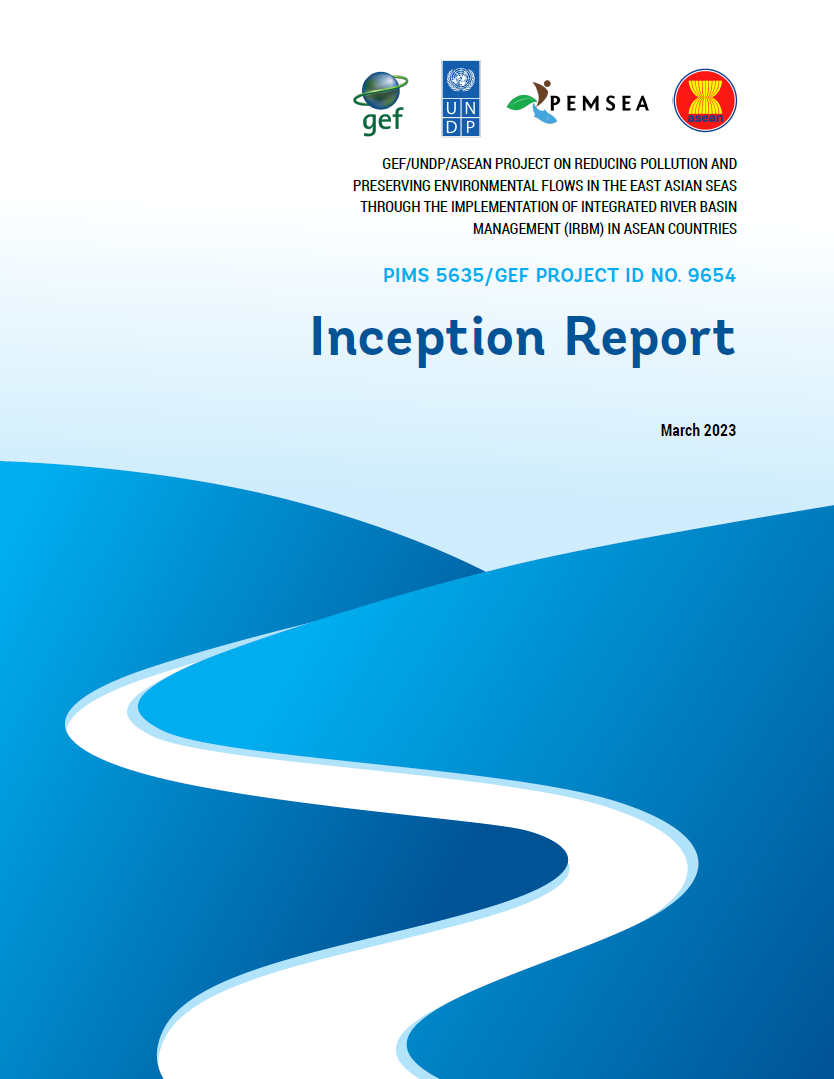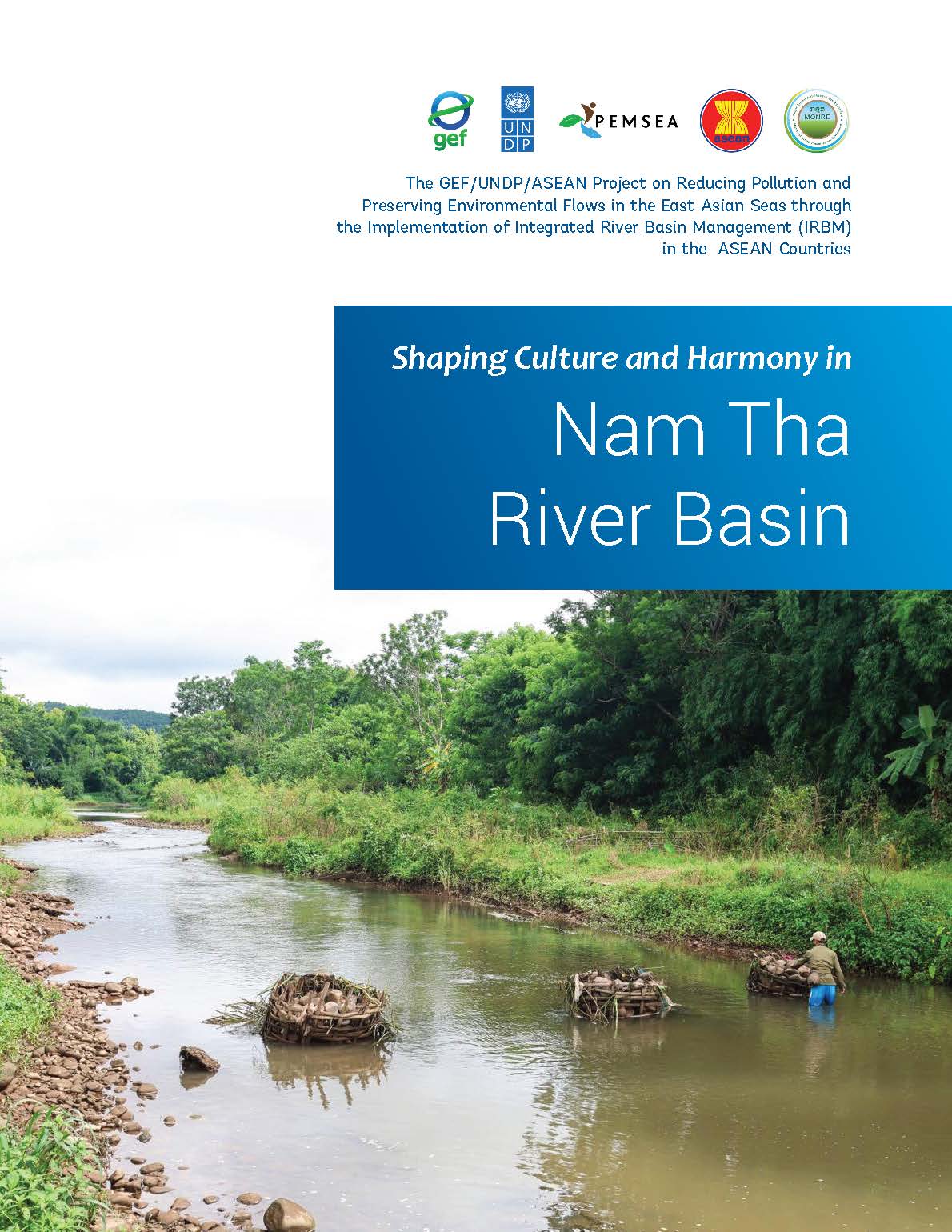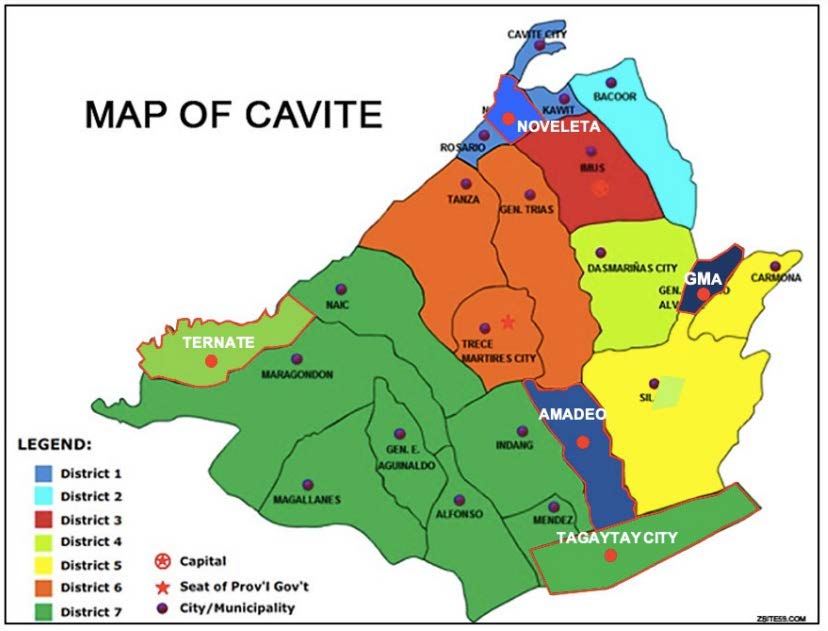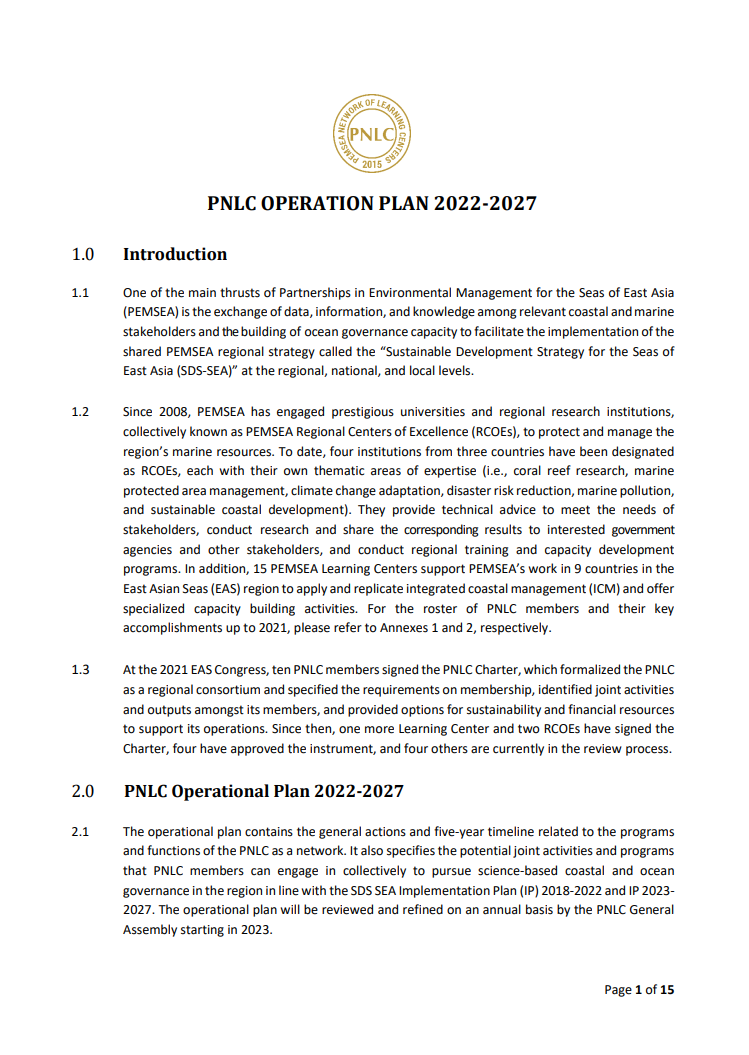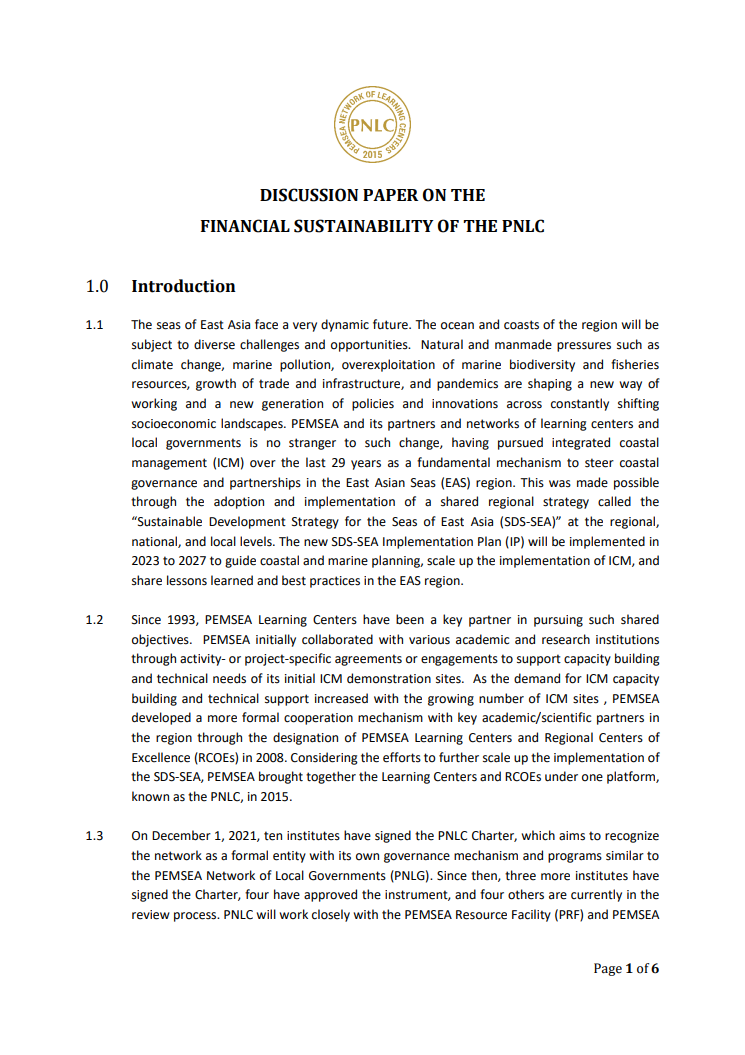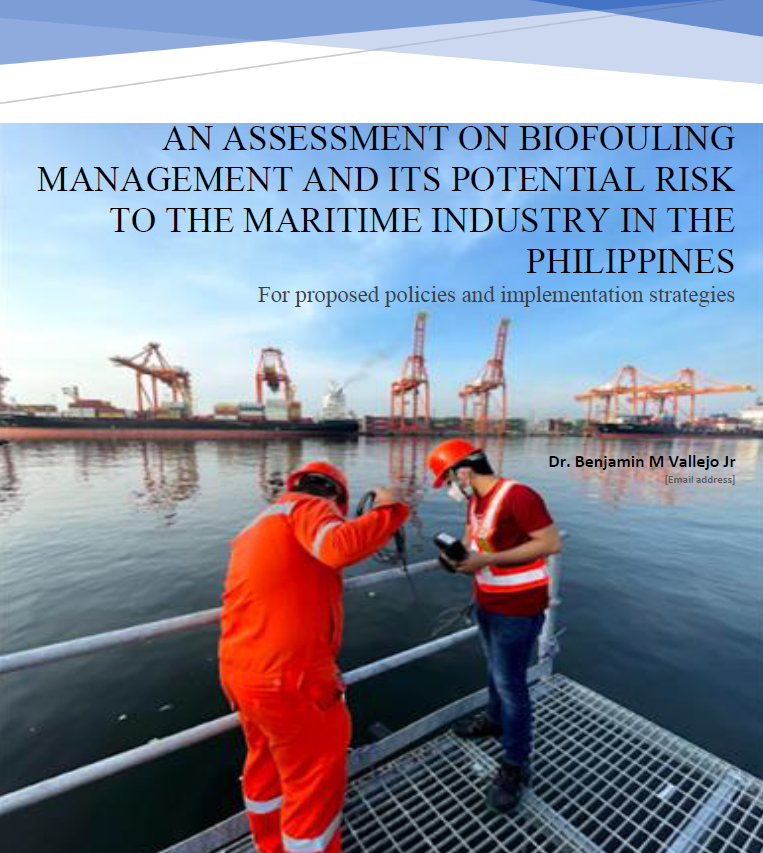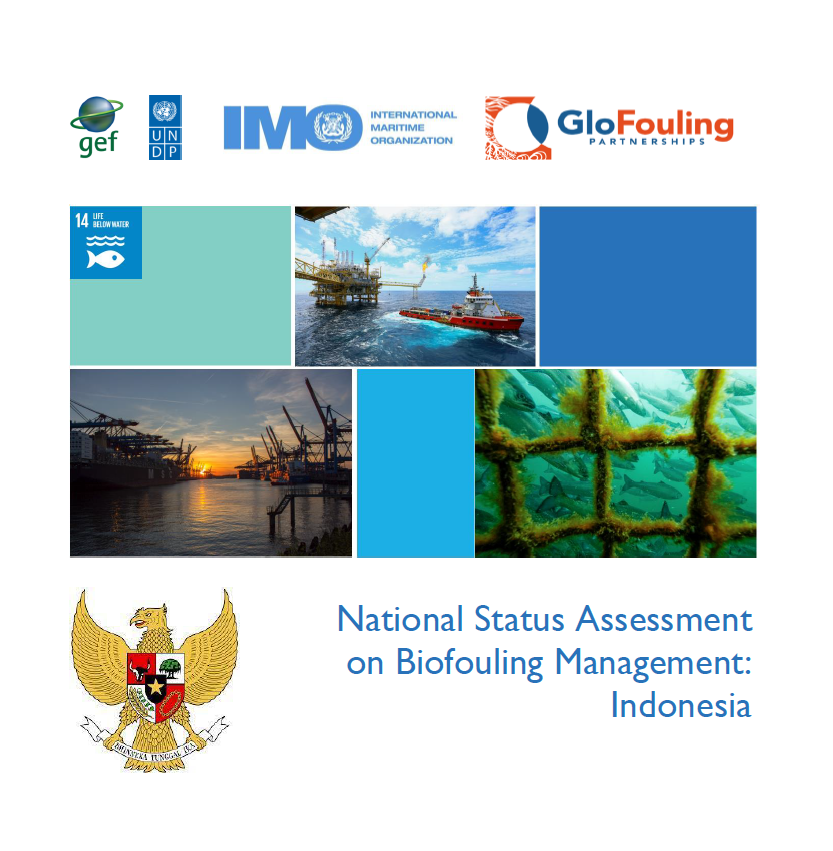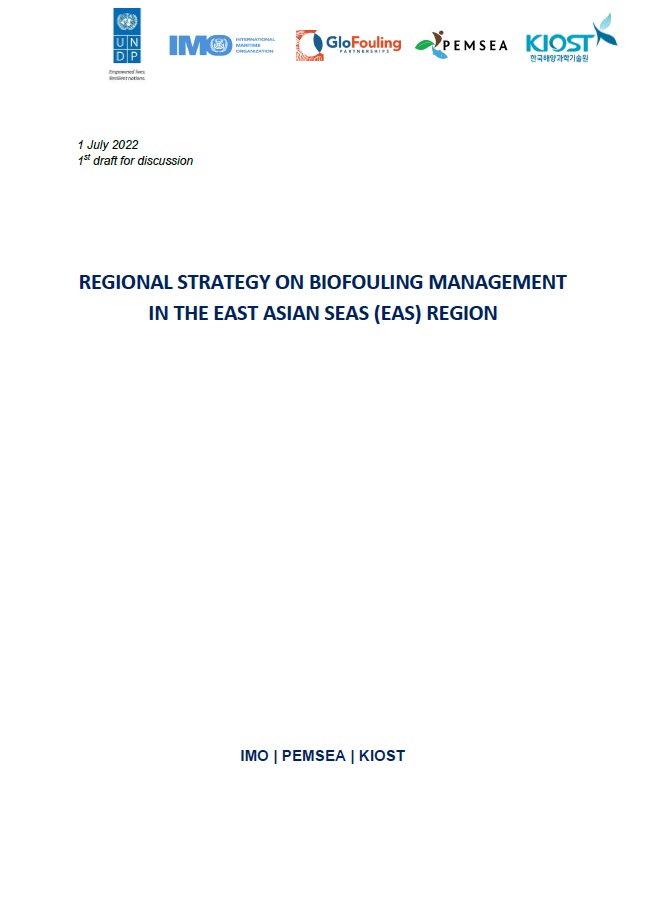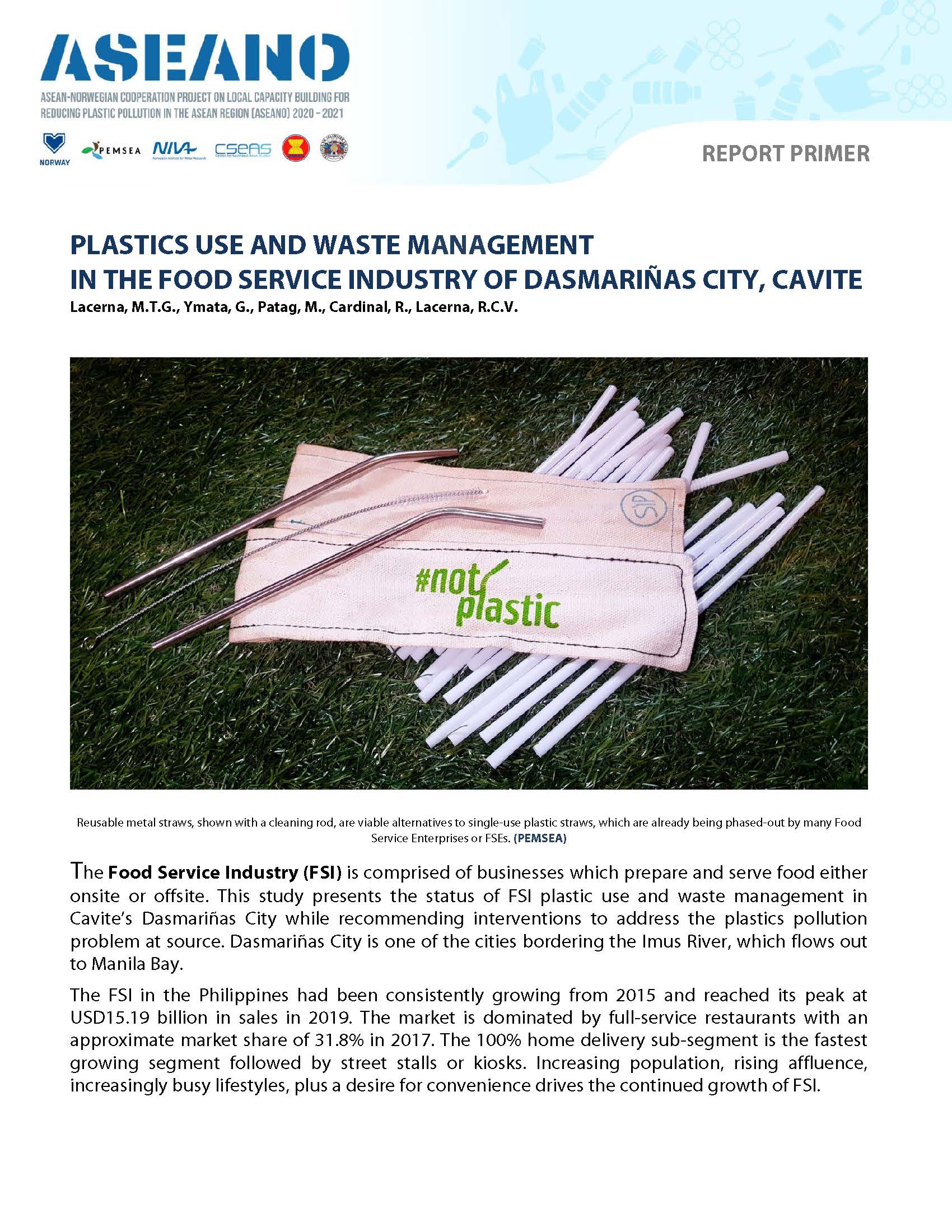
Breadcrumb
-
IRBM: Inception Report
The GEF/UNDP/ASEAN Project on Reducing Pollution and Preserving Environmental Flows in the East Asian Seas through the Implementation of Integrated River Basin Management (IRBM) in the ASEAN Countries is a 5-year project (2023-2027) with the goal of establishing functional IRBM mechanisms in priority river basins/sub-basins in the six ASEAN Member States (AMS), i.e., Cambodia, Indonesia, Lao PDR, Malaysia, Philippines and Viet Nam, for reducing pollution and sustaining freshwater environmental flows as well as adapting to climate change vulnerabilities.
The Project is designed to improve governance and management arrangements in IRBM and accelerate the required changes in the six AMS in support of national priorities, objectives and commitments to global sustainable development targets using the source to sea (S2S) framework. The Project is organized into 4 components with 5 major outcomes and 20 key outputs to achieve the project goal and objective.
This Inception Report outlines the operational strategy and approaches of the Project and how it will be implemented in 2023-2027, particularly focusing on the initiation of project activities in 2023 at the regional level and in the priority river basins of the six participating AMS. The report also presents the key results and recommendations from the Regional Inception Workshop, including the proposed next steps, for review and approval of the RSC.
-
IRBM Stories - Nam Tha River Basin: Shaping Culture and Harmony
Like in any other countries, water is essential to the life and culture of every Laotian. It drives the economy– from household and grassroots communities to national development.
Let us take you to the Nam Tha river basin in Lao People’s Democratic Republic, and immerse in the story of how the river shapes the way of life of communities and its people.
-
Recalibration and revitalization: Sorting out Cavite’s trash
The Ecological Solid Waste Management (ESWM) in Cavite Province (Plastic Wastes Recycling Project) was funded with a grant from the Coca-Cola Foundation Philippines Inc., and implemented by the Partnerships in Environmental Management for the Seas of East Asia (PEMSEA) in partnership with the Caritas Diocese of Imus Foundation, Inc and in close coordination with Cavite’s Provincial Government Environment and Natural Resources Office (PGENRO).
-
2022-2027 Operational Plan of the PEMSEA Network of Learning Centers (PNLC)
Approved by the PNLC members in November 2022, the operational plan identifies the strategic areas of interest in terms of education, training, research, and project-related pursuits of the PNLC. This is accompanied by a financial sustainability paper that identifies the initial funding requirements, resource mobilization initiatives, and cost-effective measures for supporting the operations of the network.
-
Discussion paper on achieving financial sustainability for the PEMSEA Network of Learning Centers (PNLC)
Approved by the PNLC members in November 2022, the discussion paper identifies the initial funding requirements, resource mobilization initiatives, and cost-effective measures for supporting the network in line with the PNLC Operational Plan 2022-2027. The operational plan identifies the strategic areas of interest in terms of education, training, research, and project-related pursuits of the PNLC.
-
An Assessment on Biofouling Management and its Potential Risk to the Maritime Industry in the Philippines
Marine biological invasion via the maritime industry is one of the greatest threats to marine biodiversity. While biological invasion by natural means is an ecological process that regulates marine biodiversity, biological invasion mediated by human activity is likely to place ecological communities in disequilibrium which may lead to localized extinctions as well as economic and public health impacts. In the global maritime industry, this is largely through ballast water discharge and biofouling of ships hulls. The ecological effects of maritime industry mediated biological invasion are well documented in the literature.
The International Maritime Organization (IMO) has recognized the biological invasion threat posed by invasive aquatic species (IAS). The IMO has presented two conventions, the Ballast Water Management and the Anti Fouling Systems that mandate signatory maritime states to implement appropriate measures to prevent the introduction of and manage the adverse environmental impacts of IAS.
-
The Final Report of the National Status Assessment on Biofouling Management in Indonesia
The introduction of Invasive Aquatic Species (IAS) to new environments by ships and other mobile marine structures has been identified as a major threat to world’s oceans and the conservation of biodiversity. A multitude of marine species, carried either in ships’ ballast water or on ships’ hulls, may survive and establish in a new environment, become invasive, outcompete native species, and multiply into pest [1]. On the other hand, recent research suggests that the attachment of fouling organisms on ships’ hulls and other mobile marine structures is also a potential vector for the transfer of IAS [2].
The IAS problem begins when a biofouling species attaches on ship hull and being carried (hitching a ride) from one area to another area which has new ecosystem or habitat conditions. If the biofouling species has an invasive nature, that is, it can adapt predominantly, for example, becoming a predator in the new environment, the ecosystem structure of the new environment is potentially changes and turns out to have a negative impact on the environment. The negative impact aroused can be in the form of loss of local species (biological loss), decreased aquaculture yields (economic losses), or even the emergence of new outbreaks [3].
-
Regional Strategy on Biofouling Management in the East Asian Seas (EAS) Region
The UN World Ocean Assessment has confirmed the role of Invasive Aquatic Species (IAS) as a major driver for biodiversity change in the world’s freshwater, coastal and marine ecosystem[1]. Globally, about 2,000 marine species have been introduced to new locations through human-mediated movements. When they become invasive, most of them have had negative ecological, socioeconomic and human health impacts. With increased trade and climate change, biological invasions are likely to increase. The main vectors for unintentional transfer of invasive aquatic species are ships' ballast water, biofouling of mobile marine structures and aquaculture.
[1] The Second World Ocean Assessment. United Nations, 2021.
-
ASEANO Primer: Study on Plastics Use and Waste Management in the Food Service Industry
Accessible summary for the ASEANO Project Report: Study on Plastics Use and Waste Management in the Food Service Industry (https://pemsea.org/resources/publications/reports/aseano-project-report-study-plastics-use-and-waste-management-food).
